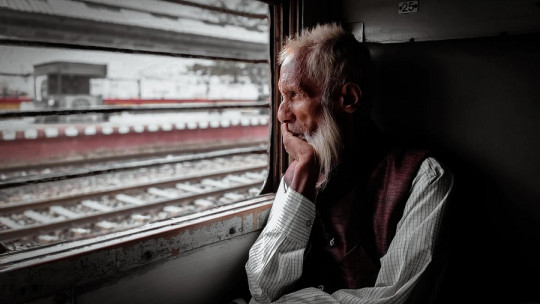Ulysses syndrome, also known as chronic migratory stress, is a psychological phenomenon that affects migrants who have left their countries of origin in search of better opportunities and face difficulties in their adaptation process in the place of destination. This term was coined by the Spanish psychologist Joseba Achotegui in 2001, in reference to the famous character from Homer’s Odyssey.
It is characterized by a series of symptoms that can include chronic stress, anxiety, depression, feelings of loss and rootlessness, intense nostalgia, a feeling of being trapped between two worlds, and difficulties establishing a new identity in the host place. Migrants who suffer from this syndrome experience a kind of conflict between the need to adapt to the new culture and nostalgia for their country of origin, which can generate great emotional exhaustion.
People affected by Ulysses syndrome often face obstacles in their integration , such as language barriers, discrimination, difficulties in finding employment according to their abilities and separation from loved ones. Additionally, they may feel additional psychological pressure to succeed and send financial remittances to their families back home, further increasing their stress level.
How to manage Ulysses syndrome
It is important to recognize and address Ulysses syndrome to ensure the mental health and well-being of people who find themselves in a migration situation, whether voluntary or forced. Understanding and empathy towards this condition are essential to help migrants overcome difficulties and build a satisfactory life in their new places of residence. These are some possible strategies to work on Ulysses syndrome:
1. Psychological support
Professional help from psychologists or therapists specialized in trauma, depression and anxiety that can guide you in managing the stress and feelings associated with the losses and change experienced.
2. Support networks
Connecting with other migrants or support groups can provide a safe space to share experiences, get practical advice, and receive mutual emotional support. Find an identification figure in those moments increases creativity by sharing knowledge
3. Cultural integration
Actively participate in cultural and community activities at the destination.
4. Language learning
Mastering the language of the destination is essential for integration and effective communication. Attending language classes or looking for free teaching programs can make the adaptation process easier. Otherwise, not knowing the language leads to isolation
5. Connection with family and friends
Maintaining constant communication with loved ones in your home country can help reduce feelings of loneliness and maintain emotional ties.
6. Set realistic goals
Set achievable and gradual goals in different areas of life, such as education, employment or housing, can provide a sense of achievement and motivation
7. Self-care
Engaging in self-care activities, such as regular physical exercise, meditation, relaxation practices, or hobbies, can help reduce stress and improve emotional well-being. Connect with the pleasant activities that were carried out prior to the change.
8. Know the available resources
Investigating and accessing the services and support programs available to migrants at the destination, such as job placement programs, legal advice or social assistance, can facilitate adaptation and well-being.
9. Educate yourself about rights and duties
Knowing your rights and duties as a migrant can empower people and help them assert their rights in the new environment.
10. Don’t be afraid to ask for help
Recognizing that you need help and seeking it is not a sign of weakness It is important to overcome the stigma associated with seeking emotional support and remember that seeking help is a brave and necessary step to overcome Ulysses syndrome.









